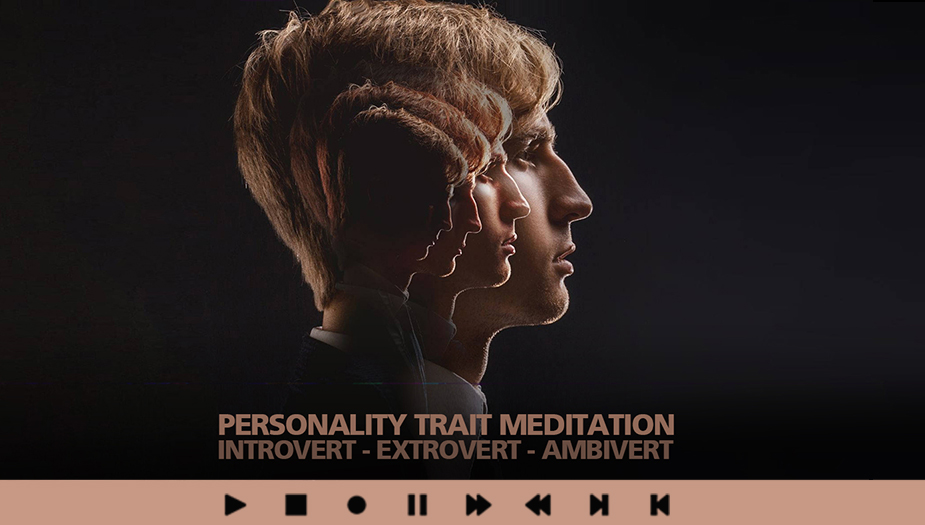Time Compression and Subjective Acceleration

Time compression and subjective acceleration profoundly influence how we experience life’s moments. Shifts in time perception often lead to time distortion, creating a sense of urgency or fleeting awareness. Understanding these phenomena unveils strategies to navigate our dynamic relationship with time effectively.
Understanding the Foundations of Time Compression

Time compression and subjective acceleration are fascinating phenomena that shape how individuals perceive time. At its core, time perception refers to our subjective sense of how quickly or slowly moments pass. Interestingly, time distortion often occurs when individuals experience intense focus or heightened emotions. For instance, moments of fear or excitement can make time seem to either drag or fly by. Consequently, understanding these foundations requires examining psychological and neurological influences. Moreover, time compression isn’t just a mental quirk; it impacts daily life, influencing memory and productivity and even decision-making. As we delve deeper into the intricacies of subjective acceleration, we uncover how complex and dynamic our brain’s relationship with time truly is. Therefore, exploring these elements sheds light on why time distortion feels so universal and yet profoundly personal to everyone.
The Psychological Basis of Faster Time Perception
The psychological basis of faster time perception reveals how emotions, attention, and habits influence our sense of time. Time compression often emerges when individuals experience repetitive or predictable routines, making days seem shorter. Conversely, subjective acceleration intensifies during emotionally charged or stimulating events. For example, people often report time distortion when under stress or deeply engrossed in engaging activities. Additionally, memory plays a crucial role. Events remembered as significant appear to have lasted longer, while mundane experiences fade quickly. Furthermore, personal attitudes toward time perception also shape how individuals view the passage of time. Understanding these psychological factors highlights why subjective acceleration varies so greatly among people. Hence, studying time compression offers valuable insights into managing time distortion and fostering a more balanced awareness of how moments pass.
The Neurological Underpinnings of Accelerated Experience
The neurological underpinnings of accelerated experience reveal how brain functions drive time compression and subjective acceleration. Neural mechanisms tied to time perception rely heavily on the brain’s processing speed and attention systems. For instance, the prefrontal cortex and cerebellum play critical roles in assessing intervals and sequencing events. During subjective acceleration, these regions process information more efficiently, creating the illusion of time distortion. Stress hormones, such as cortisol, often intensify this effect, especially in high-pressure situations. Additionally, dopamine activity amplifies focus, making time seem to shrink during moments of extreme interest or excitement. Understanding these connections clarifies why subjective acceleration feels so vivid and universal. Thus, ongoing research continues to uncover valuable insights, paving the way for deeper comprehension of how time compression affects the human experience.
Common Triggers of Subjective Acceleration

Understanding the triggers of subjective acceleration helps illuminate how time compression and time distortion influence daily experiences. Often, time perception changes drastically based on external and internal factors. Stress, routines, and even emotional states play significant roles in altering how we perceive time. For example, heightened emotions during stressful situations or repetitive tasks can speed up subjective acceleration, making days or moments feel shorter. Moreover, time distortion often occurs because our brains prioritize efficiency when processing familiar situations. By identifying these triggers, individuals can better manage their awareness of time compression and its effects. Additionally, exploring these causes reveals why time perception varies so widely from person to person. Therefore, gaining insight into the common factors behind subjective acceleration can empower people to navigate their relationship with time more effectively.
Stress and High-Intensity Situations
Stress and high-intensity situations are among the most common causes of time compression and subjective acceleration. During stressful events, the brain’s focus sharpens, prioritizing immediate survival or task completion. As a result, time perception becomes distorted, with moments seeming to pass either too quickly or too slowly. For example, people often report time distortion during emergencies or demanding tasks. Additionally, the release of stress hormones like adrenaline enhances sensory awareness, further contributing to subjective acceleration. However, this phenomenon isn’t limited to negative situations; high-intensity positive experiences, such as exhilarating activities, can also trigger time compression. Understanding this relationship between stress and time perception helps individuals manage their awareness during challenging moments. Consequently, exploring these mechanisms sheds light on how time distortion affects productivity, memory, and overall well-being.
Habit Formation and Routine-Based Time Skips
Habit formation and routine-based activities significantly influence time compression and subjective acceleration. When the brain encounters familiar, repetitive patterns, it processes them more efficiently, reducing the conscious awareness of time. As a result, time perception becomes distorted, and entire weeks or months can feel like fleeting moments. For instance, people often experience time compression during repetitive tasks or daily commutes. Moreover, subjective acceleration intensifies when habits minimize the novelty of experiences, causing the brain to store fewer unique memories. This phenomenon highlights how monotony impacts time distortion, making periods of life seem shorter in retrospect. However, breaking routines with new experiences can counteract these effects, enriching time perception and creating a more balanced awareness. Ultimately, understanding how habits shape time compression offers practical insights for managing daily life.
Strategies for Managing Accelerated Time

Effectively managing time compression and subjective acceleration can transform how individuals navigate their daily lives. When time perception feels distorted, people often struggle to stay present or productive. Fortunately, strategies exist to counter these challenges and regain control over time distortion. First, incorporating mindfulness practices can help slow the subjective acceleration of time by fostering awareness and intentionality. Second, adopting practical time-management techniques creates a structured environment that minimizes the overwhelming effects of time compression. Additionally, understanding personal time perception patterns allows individuals to identify triggers for time distortion and adjust accordingly. Therefore, combining mindfulness and organizational strategies provides a holistic way to manage the experience of accelerated time. With deliberate effort, anyone can learn to balance the rapid pace of modern life and reconnect with a more grounded sense of time.
Mindfulness and Cognitive Techniques
Mindfulness and cognitive techniques are powerful tools for addressing time compression and subjective acceleration. By focusing on the present moment, individuals can counteract the effects of distorted time perception. Practices such as deep breathing exercises and mindful observation help slow the mental rush that often accompanies subjective acceleration. Additionally, cognitive strategies, like reframing negative thoughts or prioritizing gratitude, enhance awareness and reduce the sensation of time distortion. For instance, actively noticing small details in daily life can create a richer time experience, making moments feel more expansive. Moreover, consistent mindfulness practices build long-term resilience against the stress that often drives time compression. As a result, these techniques offer practical solutions for navigating the challenges of modern life. Consequently, mindfulness empowers individuals to cultivate a balanced, intentional relationship with time and its fleeting nature.
Practical Time-Management Approaches
Practical time-management approaches provide essential tools for mitigating the effects of time compression and subjective acceleration. Structuring daily routines with clear goals helps reduce time distortion by creating a sense of control. For example, prioritizing tasks with a planner or calendar prevents the overwhelming feeling of time slipping away. Furthermore, incorporating breaks into the schedule ensures time perception remains balanced, as pauses allow the mind to reset. Additionally, batching similar tasks together minimizes the cognitive load and reduces the subjective acceleration of time. Breaking down larger projects into smaller, actionable steps also enhances focus, countering the rush of time compression. These strategies not only improve productivity but also foster a healthier relationship with time. Consequently, adopting practical time-management techniques enables individuals to manage accelerated time while maintaining clarity and purpose.
The Future of Perception and Time Distortion

The future of time compression and subjective acceleration raises intriguing possibilities for human experiences. As society evolves, time perception continues to shift, driven by rapid technological advancements and lifestyle changes. For example, the integration of artificial intelligence and immersive technologies could further amplify time distortion by altering how we engage with information. Additionally, faster communication and automation may intensify subjective acceleration, making it even harder to savor the present. However, these changes also create opportunities to better understand mental well-being and its link to time perception. By examining emerging trends, individuals and researchers can anticipate how time distortion will shape future generations. Furthermore, these insights could inspire new strategies to manage accelerated time effectively. Consequently, exploring the future of time perception fosters awareness and readiness for the challenges and benefits ahead.
Potential Technological Influences
Potential technological influences on time compression and subjective acceleration are becoming increasingly apparent as innovation accelerates. Virtual reality and augmented reality tools, for instance, create immersive environments that manipulate time perception, making hours feel like minutes. Similarly, the constant stream of digital notifications can disrupt focus, leading to greater time distortion. Moreover, artificial intelligence algorithms shape how we consume information, often speeding up subjective acceleration by encouraging multitasking. These technologies, while enhancing efficiency, also raise concerns about how they affect our ability to live in the moment. However, thoughtful application of such advancements may provide solutions to manage time perception more effectively. For example, productivity tools and mindfulness apps already aim to counteract time compression. Thus, understanding these influences is crucial for navigating the complex relationship between technology and time distortion.
Ethical and Societal Implications of Altered Time Perception
The ethical and societal implications of altered time perception demand careful consideration as time compression and subjective acceleration reshape human experiences. On an individual level, time distortion may contribute to stress and diminished mental health, especially in fast-paced environments. At a societal scale, the acceleration of daily life raises concerns about equity, as not everyone benefits equally from technological advancements. Additionally, ethical questions emerge regarding the design of immersive technologies that intentionally manipulate engagement for profit. For instance, platforms that foster excessive engagement can exacerbate time compression, leaving users feeling perpetually rushed. On the other hand, these tools could also be harnessed to enhance mindfulness and well-being. Therefore, addressing these implications requires collaboration between policymakers, technologists, and ethicists to ensure time distortion fosters positive, equitable outcomes for all.
Time compression and subjective acceleration shape how time perception impacts our daily experiences. While time distortion can feel overwhelming, recognizing its causes and solutions empowers us to manage time consciously, fostering balance and enhancing our awareness of life’s fleeting yet meaningful moments.
CLICK HERE TO USE BRAIN ENHANCEMENT FOR BETTER TIME MANAGEMENT!
TO ALL OUR READERS, today we humbly ask you to help our little blog. For over ten years now, BinauralBlog.com has been producing fantastic mindfulness articles. We do not beg for donations, use any intrusive popups, sell any form of user data, or fill our content with ads. How do we sustain ourselves? We need shares, plain and simple. The time has come for us to make a simple request. Please, if you enjoyed this article and want us to keep producing content - use any (or all) of the CIRCULAR SHARE BUTTONS ABOVE to help support our little blog. Thank you from the Binaural Blog, Founder & Team





Reading this post was a refreshing look into how tricky time can be! The breakdown of accelerated experience, especially around routines and stress, gave me new insight into why my day sometimes feels like it’s vanishing.
Very interesting. Thank you. I appreciate the balanced approach to both psychological and neurological factors behind time distortion. Much depeet than just “time flies when we are having fun.”
I’ve always felt certain moments zip by too fast while others crawl, and this article helped me see how emotions and routine shape that feeling. It’s fascinating that our brains adapt to repetitive tasks by effectively skipping details.
LOVE! What struck me most is how our perception of time isn’t fixed but morphs with stress, novelty, and even technology. It implies we have more power over our subjective reality than we realize.
Worth noting that the older you get, the faster time seems to fly by! Remember being a little kid and 30 minutes seemed like a lifetime lol?